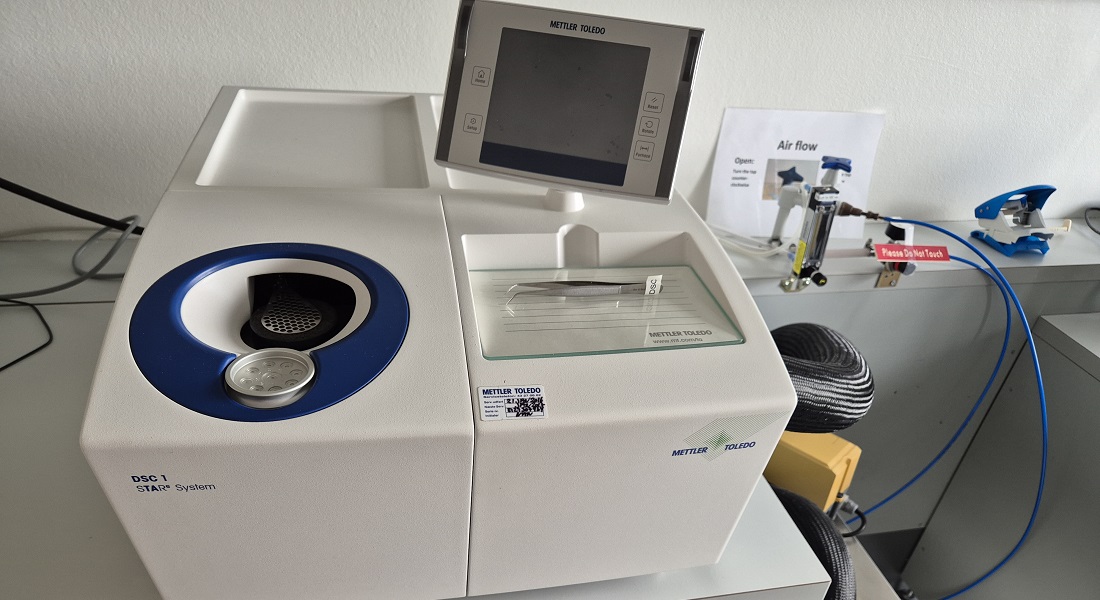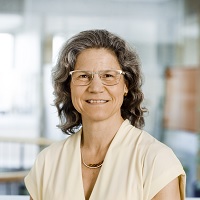Thermal analysis

Description
Thermal Analysis is a technique in which a physical and/or chemical property of a material is measured as the material is subjected to a controlled temperature program. Hence, Differential Scanning Calorimetry (DSC) determine the energy absorbed or released by a sample as it is heated, cooled or held at constant temperature. The thermal platform consists of two DSC equipment operating at different sensitivities.
The Mettler Toledo DSC (heat flow at mW) allows characterization of materials over a very wide temperature range, −100 - 700 °C, with cooling rate 0.02 - 50 °C/min and heating rate 0.02 - 300 °C/min. The Mettler Toledo DSC has option for Temperature Modulated Differential Scanning Calorimetry by subjecting the material to a temperature oscillation, which can be superimposed on a linear heating or cooling program, hence, separate overlapping temperature-dependent and time-dependent thermal effects.
The Setaram Micro DSC III (heat flow at μW) has an ultra-high sensitivity response and allows characterization of materials over the temperature range −20 - 120 °C, with cooling rate 0.001 – 1.2 °C/min and heating rate 0.001 - 3 °C/min.
Differential scanning calorimetry is fast and very sensitive. Sample preparation is easy and requires only small amounts of material. The technique is ideal for quality control, material development and material research. The method is used to analyze and study all kinds of materials such as food materials, thermoplastics, thermosets, elastomers, composite materials, metals and alloys, adhesives, pharmaceuticals and chemicals.
DSC monitors heat effects associated with 1. and 2. order phase transitions or chemical reactions as a function of temperature. Examples of thermal events and processes that can be determined by DSC:
- Melting behavior
- Curing
- Crystallization and nucleation
- Stability
- Polymorphism
- Miscibility
- Liquid-crystalline transitions
- Effects of plasticizers
- Phase diagrams and composition
- Thermal history
- Glass transitions
- Heat capacity and heat capacity changes
- Reactivity
- Reaction and transition enthalpies
- Reaction kinetics
- Purity
Options and requirements for use
Training is needed for independent operation. It is recommended to make a literature study prior use to establish a basis for the temperature programme. Crucible for the Mettle Toledo DSC must be acquired by user.
Interpretation and analysis of the results are not included in the fee. Subsequent analysis help is negotiated separately with a superuser of the DSC platform.
At the start of a collaboration on research with the University of Copenhagen, a cooperation agreement must be drawn up. There are different types of agreements depending on the nature of the cooperation. See more here: collaboration.ku.dk/cooperation-agreements/
Associate professor Vibeke Orlien, vor@food.ku.dk
Associate professor Karsten Olsen, ko@food.ku.dk
Contact

Vibeke Orlien,
Associate Professor
vor@food.ku.dk

Karsten Olsen,
Associate Professor
ko@food.ku.dk
